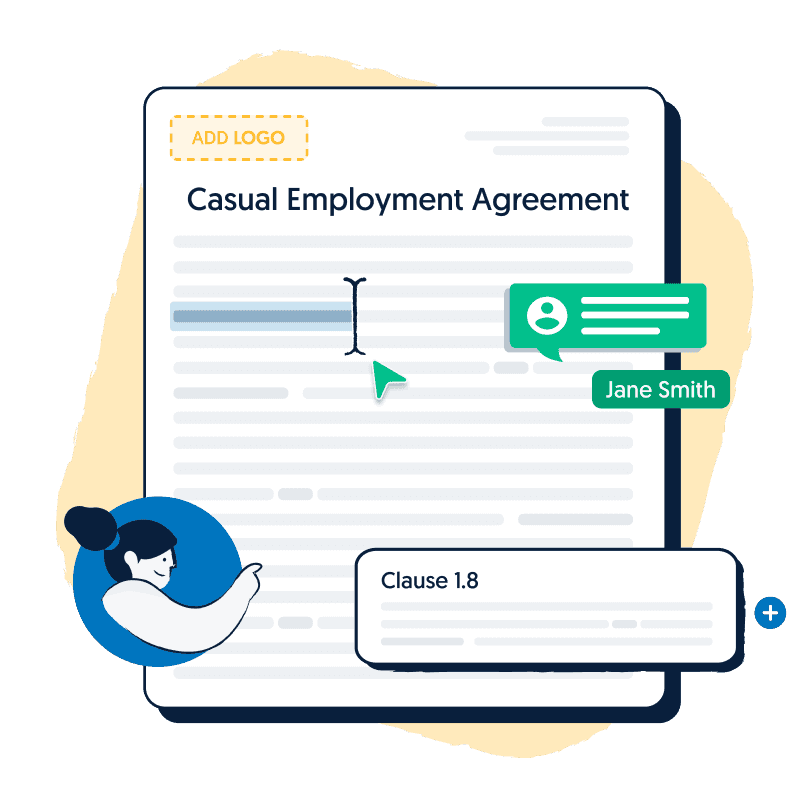Taking on new employees is exciting and often unnerving. You might already have a well-knit group and entrusting the shared success of your business to somebody you don’t know yet can be daunting. Lots of employers know this feeling. This is why probation periods exist. A probation period allows both businesses and employees to decide if the position is right for them. But what happens when you’re still unsure at the end of this period? Can I extend an employee’s probation period?
Table of Contents
What is a Probation Period?
To determine whether or not probation can be extended, it is important to know what it is and how it works. Probation periods are set out in the employment agreement. There will be no probation period unless it is set out in the contract. Most will last from three to six months. However, they can actually last anywhere from a few days to a few years. There are no restrictions on how long they can last! The key is to keep it reasonable. Employers use probationary periods in employment contracts as tools to make sure employees understand how to meet their obligations in the business. At the end of the day, it tells the employee that if they don’t suit the needs of the business, then it isn’t the right job for them.
To best make use of probationary periods, you may want to regularly meet with your employer/employee. These meetings don’t even have to be formal. They allow for a better understanding of responsibilities. And they can also make sure expectations are clarified and any possible issues can get the early attention they need.
Keep in mind that regardless of probation, a person is still technically employed. This means they are still entitled to paid leave, sick leave and all the other things somebody would receive that isn’t on probation.

Get your Casual Employment Agreement now for free.
Hire casual employees in any industry. This Employment Agreement (Casual) is essential when hiring new employees for your business.
Extending a Probation Period
Let’s say the probation period set out in your contract is two months and you’re still not sure about the new employee. If you’d like to extend it, you can. But only if the contract allows it. If the contract does not say it can be extended, then it cannot. Simple as that. For example, if a contract says that probation will last three months, but the company is allowed to extend it by a month depending on certain circumstances, then it may do so under those circumstances.
If you don’t want to extend the period and your new employee is right for the team, then nothing really needs to happen. The employment contract will continue to operate and the probationary period will end. It is, however, good practice to issue the employee with a probation completion letter. This formally documents the period ending and what the outcome is moving forward.
Minimum Employment Period
You might ask if you could extend the probation period forever. If your contract says so, technically the answer is yes. After a certain point, however, it might not matter when it comes to dismissal. This certain point is known as the minimum employment period. This is defined in the Fair Work Act 2009 (Cth). This period is different for small businesses and all other businesses. Small businesses are those that have less than 15 employees and their minimum employment period last one year. All other businesses’ will last six months. The minimum employment will run at the same time as probation and starts when the employment begins.
The effect of the minimum employment period is that once it ends, then the Fair Work Act will apply a much stricter standard to how a person is dismissed. This just means that if you decide that an employee is not right for your business, it is a lot more difficult to dismiss them. The probation period and whether or not it has been extended will not matter. This is why probationary periods tend to last three to six months.
Conclusion
When thinking about whether you should extend a probation period, keep in mind the minimum employment period. Ultimately, if an employee has been working longer than the minimum period, it might not matter if probation exists at all when you’re thinking about the possibility of dismissal. If this is something you are thinking about, read about how to fire someone. The probationary period is a good way for employers to monitor performance. It is encouraged that employers use this as an opportunity to evaluate workers before the minimum employment period ends.




